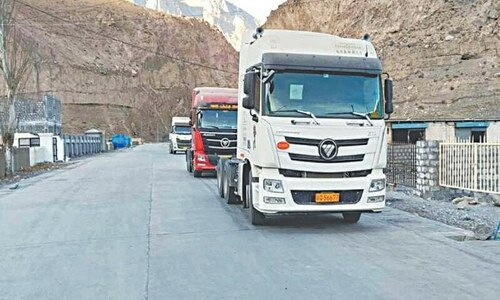BILATERAL negotiation between the labour union and the management to reach an agreement is an important periodical activity in an organisation, and is sanctioned by the law.
Sections 42 to 47 of the Sindh Industrial Relations (Revival and Amendment) Act 2010 (IRA) provide the procedure for negotiation relating to differences and disputes. Under Section 57 of the Act an agreement is binding for such period as is agreed upon by the parties but not exceeding two years.
There was no such limit of duration in the previous law and a few companies used to enter into agreements even for three years.
This was essential as collective bargaining between the union and the management is a difficult process, and once an agreement is reached, the parties involved should be given adequate time to reenergise.
The general concept of a union-management agreement in our country is that it is a document which allows monetary increases in benefits drawn by the unionised staff and also improves the terms of their employment.
An agreement is also known as a peace agreement because the employer is supposed to have bought peace for its operative period. Although the law does not provide that, it is mandatory for an employer to increase the salaries of employees through the agreement. But to do so is a longstanding custom and practice in industrial establishments. Neither labour unions nor employees represented by them will accept an agreement which does not contain any increase in salaries but is merely a code of conduct for improving their commitment to job and behaviour.
The first-ever union-management agreement was reached between the General Motors Corporation and the International Union, United Automobile Workers of America on Feb 11, 1937. This was a one-page document and only recognised the union as the collective bargaining agency for those employees of the corporation who were its members.
It also defined the reciprocal rights and obligations of the corporation and the union. These are similar to those as contained in the Sindh IRA 2010 relating to acts of unfair labour practices on the part of employers and the workmen.
The agreement states that the corporation or any of its agents will not discriminate, interfere, restrain or coerce any employee because of membership in the union. It was also agreed that there would be no strikes called or any other interruption to or interference with production by the union or its members. There would be no attempts to intimidate or coerce any employee by the union and there would not be any solicitation or signing up of members by the union on the premises of the company.
The management of General Motors entered into negotiation with the union for improvement in the terms of employment of its employees subsequent to agreeing to the above-stated code of conduct. This one-page document made history being the first-ever agreement reached between an employer and the union following the process of collective bargaining and it also laid down the principles of union-management relations, which were later adopted by Britain in legislating its laws on industrial relations for the subcontinent.
PARVEZ RAHIM Karachi














































Dear visitor, the comments section is undergoing an overhaul and will return soon.